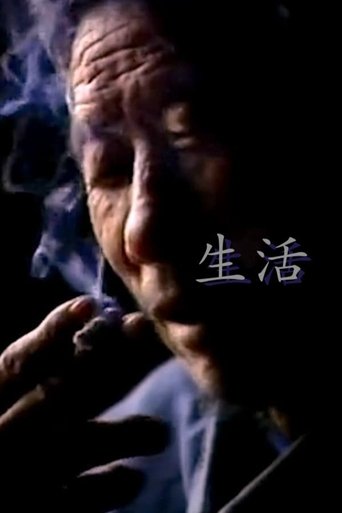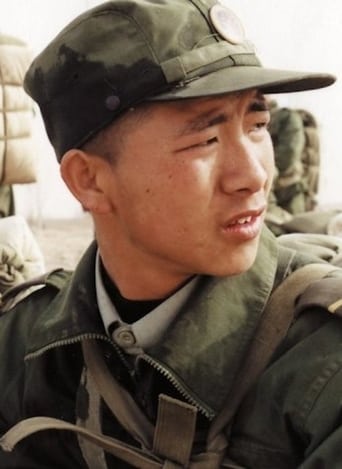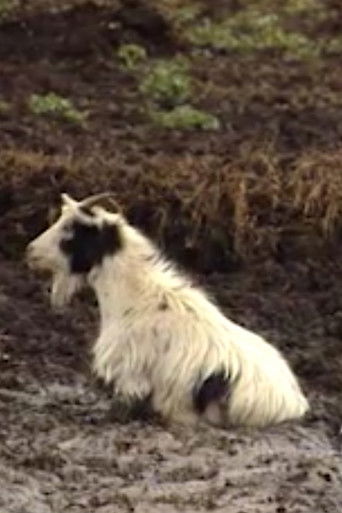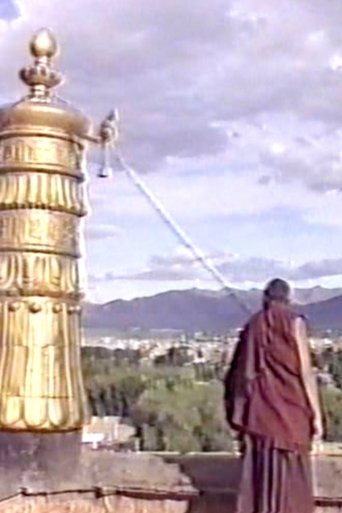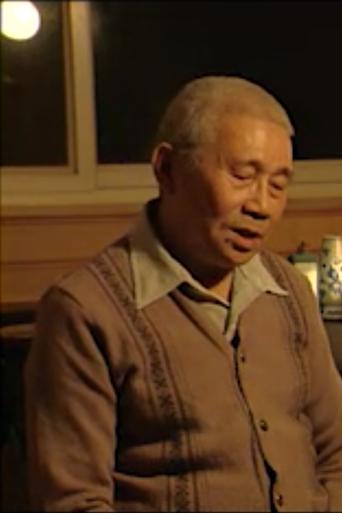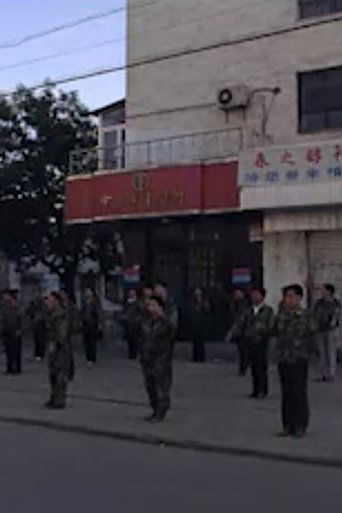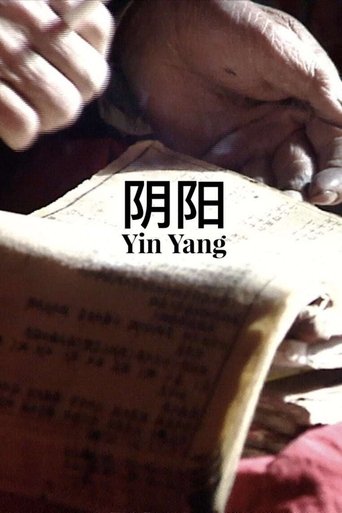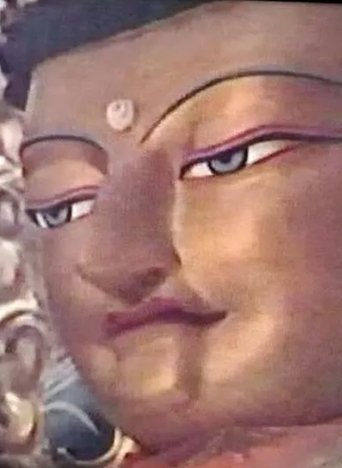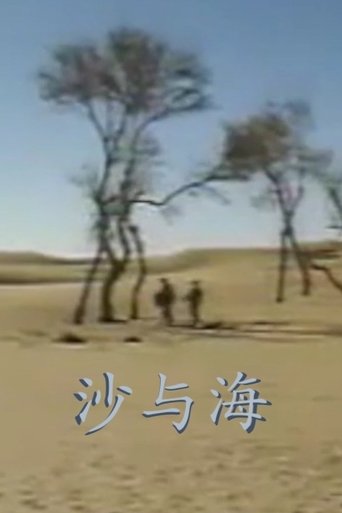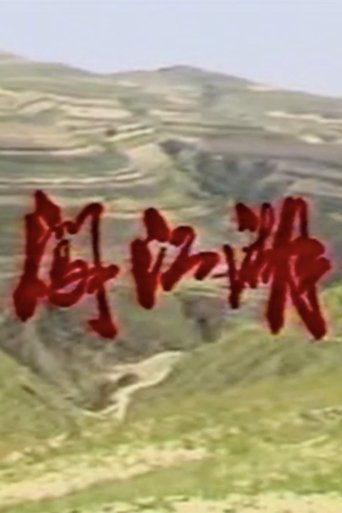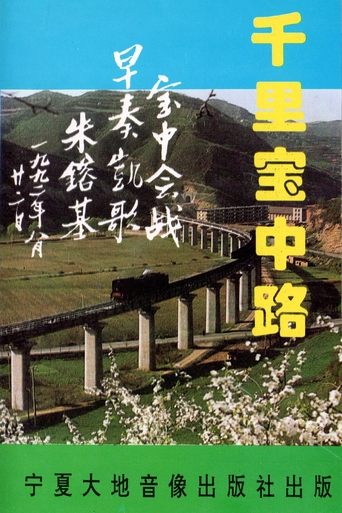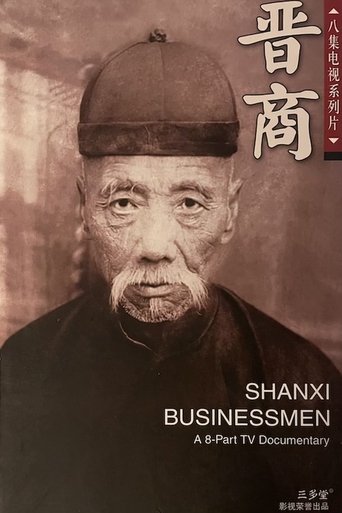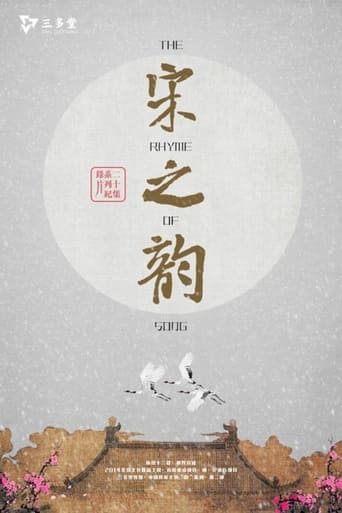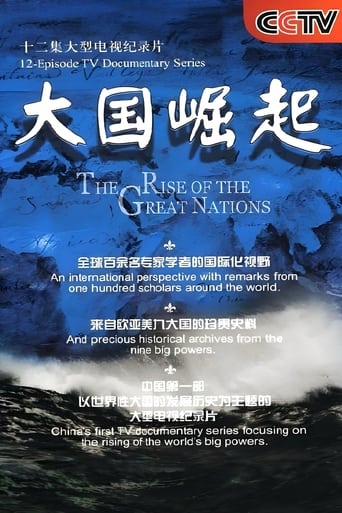Kang Jianning
Recently added
生活
Aug 09, 2003Sand and Sea (shot in 1989) was a collaboration between filmmaker Kang Jianning and Liaoning Television producer Gao Guodong. That film depicted the lives of two families: one living in the Ningxia desert and another, a Northeastern fishing family, living on a remote island. For the 2003 broadcast version of Life — which aired as part of the 'The Weight of Time' series on Chinese TV — Gao did not participate, thus this film is only about the desert family, headed by father Liu Zeyuan. Since 1989, Kang has remained in contact with the family and returned to film them multiple times over the years. Kang's filmmaking largely consists of striking landscape shots of the desert and rather tortured interviews with reticent family members, who often provide one-word answers to Kang’s audible questions. Kang himself also appears, and is an important catalyst to drawing out responses. The filmmaker emphasizes a deep connection to place, as opposed to an eventful or dramatic narrative.
当兵
Aug 09, 2001Directed by Kang Jianning (under the pseudonym Wu Gong), and part of the 'Interesting Times' series with Duan Jinchuan's The Secret of My Success and Jiang Yue's This Happy Life. The film chronicles the progress of a lazy Chinese teenager who has a rude awakening when he joins the People's Liberation Army. The original film was finished in 2001, was titled 当兵 (Soldier), and is 88 minutes. It has never been broadcasted. There are two other, widely available versions: An English dub cut for BBC, which is 40 min, and a three-episode CCTV version that adds footage shot in 2003.
黄河流长
Aug 09, 1986An early film by Chinese documentary director Kang Jianning. Whether it is a feature or a short is unknown.
天籁
Jun 07, 1994Never broadcasted film by Chinese documentary filmmaker Kang Jianning. Whether it's a feature or a short is not known.
生活
Jul 06, 1995A 1995 film co-directed by Kang Jianning and Gao Guodong that, most likely, grew out of their earlier film Sand and Sea, and saw at least Kang returning to the family in the desert that he interviewed for that film. Not to be confused with another film of this same title by Kang, from 2003, which includes more up-to-date footage, was itself edited down for broadcast on Chinese TV as part of the 'The Weight of Time' series, and does not include any contributions from Gao Guodong.
石头上的印记
Feb 28, 1991Never broadcasted film by Chinese documentary filmmaker Kang Jianning. Whether it's a feature or a short is not known.
黄河谜
Apr 10, 1985Early film by Chinese documentary filmmaker Kang Jianning. Whether it's a feature or a short is not known.
泸沽湖
Jun 08, 1993窑洞人
Sep 21, 1987Early film by Chinese documentary filmmaker Kang Jianning. Whether it's a feature or a short is not known.
雪域
Apr 03, 1992Four-part documentary series about Tibet. Part 1: Heavenly Palace (天宫). Part 2: Guge (古格). Part 3: Trulchendanpa and Tholing Monastery (楚成旦巴和托林寺). Part 4: Echo (回声).
听樊先生讲过去的故事
Nov 21, 2002出汗
Dec 27, 2002公安分局
Oct 20, 1998阴阳
Oct 15, 1997In the village of Doupo, Pianxian Township, Pengyang County, Ningxia Hui Autonomous Region, there is a villager named Xu Wenwen. He is a Feng Shui master and who goes by the name “Yin Yang.” Due to the drought in the mountainous areas, it is difficult for farmers to use water for both domestic and agricultural purposes. In order to solve the problem of farmers' water use, Pengyang County Water Conservancy Bureau plans to help farmers repair the water cellar through government subsidies, so that the rainy season can be stored in the cellar and then used for farming, but due to limited funds, it is not Every family can receive subsidies, so everyone decides the right to play in the cellar by grasping the way. The cellar is laid, the water storage is increased, and the corn is also planted. The life of the mountain people seems to have hope.
Documentary
楚成旦巴和托林寺
Jun 08, 1993Tholing Monastery (Tuolin si 托林寺) is the oldest monastery in the Ngari Prefecture of western Tibet. It is situated in Tholing (Zanda), Zanda County, near the Indian border of Ladakh — more than 1,800 km from Lhasa. It was built in 997 AD by Yeshe-Ö, the second King of the Guge Kingdom. In the Tibetan language, 'Tholing' means "hovering in the sky forever," and is reflected by the location of the monastery, which sits at an elevation of 12,400 feet. This documentary follows an old monk who spent his childhood at the Tholing Monastery, in the 1950s. In 1960, he fled to India, and in 1967 (during the Cultural Revolution), Tibetan residents from in and around Zanda County gathered at Tholing Monastery and demolished most of its buildings within a month. The monastery was allowed to resume Buddhist prayer activities in 1984; upon hearing this, the old monk left his life in India and returned to Tibet.
沙与海
Jun 20, 1991Liu Zeyuan is a farmer on the edge of the desert at the junction of Inner Mongolia and Ningxia. He grows food and raises camels, and his family's annual income is 5,000 yuan. Liu Picheng is a fisherman on Jingwa Island, part of the isolated Liaodong Peninsula; he is unwilling to attract attention and becomes hostile to the camera. The living environment and conditions of these two families are different, but the directors try to find some common ground while expressing the two respective unique lifestyles. In fact, these lives are firmly swayed by nature: sand storms can destroy everything, just as the ocean tide can destroy everything, and for the two protagonists, the difficult grasp of the future and their children also brings them the same loneliness. Filmed in 1989, Sand and Sea received the Grand Prix award from the 1991 Asian Broadcasting and Television Union.
闯江湖
Jun 22, 1987The landmark work of early Chinese documentary. Examines the survival status of the Ningxia Loess Plateau in the 1980s from a more comprehensive perspective, applying the key words of the popular rock song "Nothing": The first part, "Nothing"; the second part, "This is you / The tears are flowing"; the third part, "The ground under your feet is shaking"; the fourth part," You follow me." In the film, the author also clearly discusses the life in the Plateau from several aspects: water, food, poverty alleviation, education, and labor exportation. A large number of interviews were conducted with local farmers, government officials, poverty alleviation working groups, etc. — trying to find the main factors leading to infertility and the methods that can be adopted to get rid of it, discussing the feasibility and effect of "going out" in the second half. The whole film objectively reflects the living conditions of the countryside at that time.
千里宝中路
Jan 01, 1993千里宝中路
Jan 01, 1993阴阳
Oct 15, 1997In the village of Doupo, Pianxian Township, Pengyang County, Ningxia Hui Autonomous Region, there is a villager named Xu Wenwen. He is a Feng Shui master and who goes by the name “Yin Yang.” Due to the drought in the mountainous areas, it is difficult for farmers to use water for both domestic and agricultural purposes. In order to solve the problem of farmers' water use, Pengyang County Water Conservancy Bureau plans to help farmers repair the water cellar through government subsidies, so that the rainy season can be stored in the cellar and then used for farming, but due to limited funds, it is not Every family can receive subsidies, so everyone decides the right to play in the cellar by grasping the way. The cellar is laid, the water storage is increased, and the corn is also planted. The life of the mountain people seems to have hope.
Documentary
出汗
Dec 27, 2002当兵
Aug 09, 2001Directed by Kang Jianning (under the pseudonym Wu Gong), and part of the 'Interesting Times' series with Duan Jinchuan's The Secret of My Success and Jiang Yue's This Happy Life. The film chronicles the progress of a lazy Chinese teenager who has a rude awakening when he joins the People's Liberation Army. The original film was finished in 2001, was titled 当兵 (Soldier), and is 88 minutes. It has never been broadcasted. There are two other, widely available versions: An English dub cut for BBC, which is 40 min, and a three-episode CCTV version that adds footage shot in 2003.
泸沽湖
Jun 08, 1993A literary education series made for Ningxia TV Station, Shanxi TV Station, and Beijing Sanduotang Film and Television Advertising Company over two years (completed after searching for materials, researching and demonstrating, setting up scenery, and post-production). In order to make this series, the director had to travel all over China, with an investment of more than one million RMB. There are 20 episodes total of Rhyme of Tang; the runtime for each episode is about 20-30 minutes. The production of this series is exquisite, and creates a new space for TV interpretation of classics in classical Chinese literature. Its unique angle, beautiful visuals, and flare for elegance have resulted in an unexpected and enthusiastic response.
Documentary
Shanxi businessmen are the earliest businessmen in Chinese history. Their emergence can be dated back to four or five hundred years ago. In their heyday, during the Ming and Qing dynasties, Shanxi businessmen, as a business bloc, were among the top 10 business blocs in China. Pursuing commercial integrity as their cardinal principal, having the strong backing of abundant capital, and with far-sighted management, they explored a variety of business scopes and markets. Their business firms covered salt, iron, cotton, cloth, furs, silk, tea, and financial establishments, etc., spreading all over the country and even reaching as far as Europe, Japan, South-east Asia, and Arabian countries. They had been holding a dominant position in the business world of China for 500 years. As a full coverage of the history and commercial culture of Shangxi businessmen, this 8-part TV series is a representative work of Chinese documentaries.
Documentary
The Rise of the Great Powers is a 12-part Chinese documentary television series produced by CCTV. It was first broadcast on CCTV-2 from 13 to 24 November 2006. It discusses the rise of nine great powers: Portugal, Spain, the Netherlands, the United Kingdom, France, Germany, Japan, Russia, and the United States.
The documentary "endorses the idea that China should study the experiences of nations and empires it once condemned as aggressors bent on exploitation" and analyses the reasons why the nine nations rose to become great powers, from the Portuguese Empire to American hegemony. The series was produced by an "elite team of Chinese historians" who also briefed the Politburo on the subject." In the West the airing of Rise of the Great Powers has been seen as a sign that China is becoming increasingly open to discussing its growing international power and influence—referred to by the Chinese government as "China's peaceful rise."
Documentary

